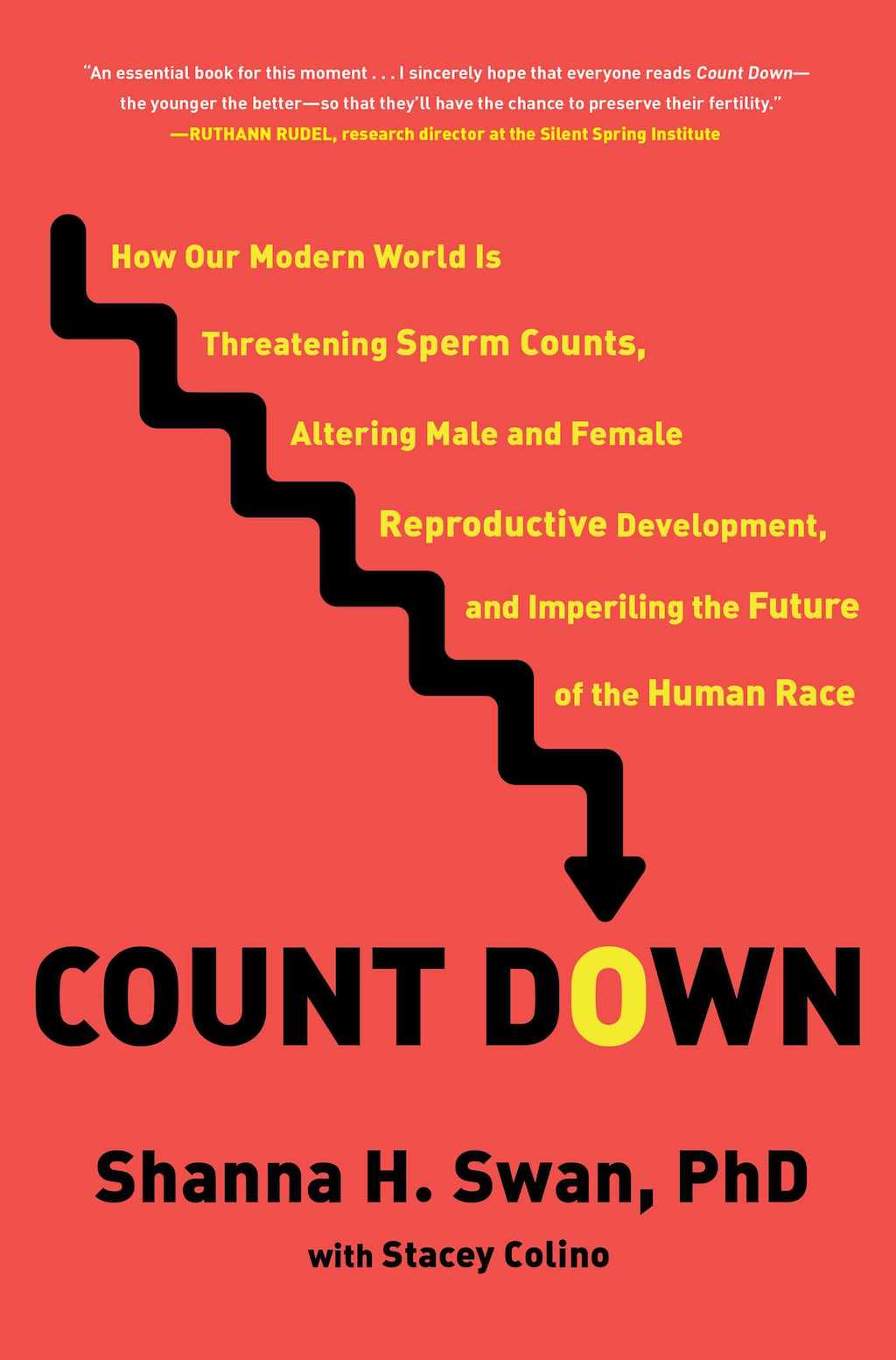‘Sperm Counts Could Reach Zero By 2045’: ‘Everywhere’ Plastic Toxins Behind Fertility Crisis That Threatens Human Survival
4 Mins Read
Declining sperm counts and changing reproductive development is leading to a fertility crisis that could endanger human life, says leading epidemiologist Dr. Shanna Swan. Driving the trend is our growing exposure to “everywhere chemicals” and environmental toxins found in everything from plastic containers to beauty products, which are damaging the planet as well as the future of mankind.
In her new book Count Down, Swan, a reproductive epidemiologist and professor of environmental medicine and public health at the Icahn School of Medicine, says that nosediving sperm rates and changes in sexual development is posing a danger as grave as the climate crisis.
“The current state of reproductive affairs can’t continue much longer without threatening human survival,” writes Swan, in the book she co-authored with award-winning health writer Stacey Colino, adding that we must now “do what we can to safeguard our fertility, the fate of mankind, and the planet”.
While human overpopulation and its consequences have often made headlines in recent years, there has been far less attention paid to the slow, but very real risk of the human species not being able to last much longer.
According to a study co-authored by Swan in 2017, sperm counts in the western world have fallen by an astonishing 59% between 1973 and 2011. At this rate, sperm counts will likely reach zero by as soon as 2045. Zero.
It’s a global existential crisis.
Dr. Shanna Swan
Between the years 1964 and 2018, the fertility rate fell from a global average of 5.06 births per woman to 2.4. Around half of all countries in the world currently have fertility rates below 2.1 – the level at which a population replaces itself from one generation to the next.
“In some parts of the world, the average twenty-something woman today is less fertile than her grandmother was at 35,” Swan writes. “It’s a global existential crisis.”
Why this is happening, Swan details in Count Down, is our growing exposure to “everywhere chemicals” – the biphesnol-A (BPA), phthalates and per- and polyfluoroalkyl substances (PFAS) that can be found virtually everywhere, in pesticides, food containers and wraps, make-up and cosmetics, and even children’s and baby products such as bottles, cups and pacifiers.
These toxins are endocrine-disrupting chemicals (EDCs), leading to real biological consequences such as increasing miscarriage rates, rising incidences of genital abnormalities among boys and puberty setting in far earlier for girls than in previous generations.
“Chemicals in our environment and unhealthy lifestyle practices in our modern world are disrupting our hormonal balance, causing various degrees of reproductive havoc,” Swan writes.
Existing research has already found associations between higher PFAS exposure with lower sperm production rates, and a correlation with a “reduction of semen quality, testicular volume and penile length”.
Chemicals in our environment and unhealthy lifestyle practices in our modern world are disrupting our hormonal balance, causing various degrees of reproductive havoc.
Dr. Shanna Swan

It’s something that most of us haven’t thought about, with contraception, cultural changes and the higher cost of having children usually listed as the reasons why the population replacement level is falling.
But when we truly think about the extent to which everywhere chemicals have permeated the planet, Swan’s warning seems plainly obvious. PFAS-containing plastics have been found in everything from our rivers and oceans to sea spray and even in the sky. It gets scarier when scientists begin to find out that plastic by-products can even be detected in the urine and blood samples of children as young as three years old.
For those who think they are avoiding BPAs by purchasing BPA-free alternatives, turns out the picture isn’t really much better either, with one 2019 study funding that BPA-free plastic replacements still impac reproduction and is linked to disrupting the earliest phases of egg and sperm production – an effect that can be passed down to later generations too.
Erin Brockovich, an American legal clerk and renowned environmental activist, says that these staggering findings revealed in Count Down is a resounding call for urgent and swift action.

It’s time for us to make it a priority to demand that endocrine-disrupting chemicals in the everyday products are replaced with chemicals that don’t affect our hormones and don’t persist in the environment.
Dr. Shanna Swan
“Given everything we know about these chemicals, why isn’t more being done? Right now, there is a paltry patchwork of inadequate legislation responding to this threat,” writes Brockovich in a Guardian opinion article.
“It’s killing us, literally, by harming and attacking the very source of life: our reproductive capacities. The rapid death and decline of sperm must be addressed, and it must be addressed now. There simply is no time to lose.”
“It’s time for us to make it a priority to demand that endocrine-disrupting chemicals in the everyday products are replaced with chemicals that don’t affect our hormones and don’t persist in the environment,” says Swan.
“It’s also time to establish better testing methods and regulatory actions so that only safe chemicals can enter the market and our bodies…We need to stop using each other and our unborn children as lab rats for EDC exposures. The health and the future of the human race really do depend on it.”
Lead image courtesy of Unsplash.




